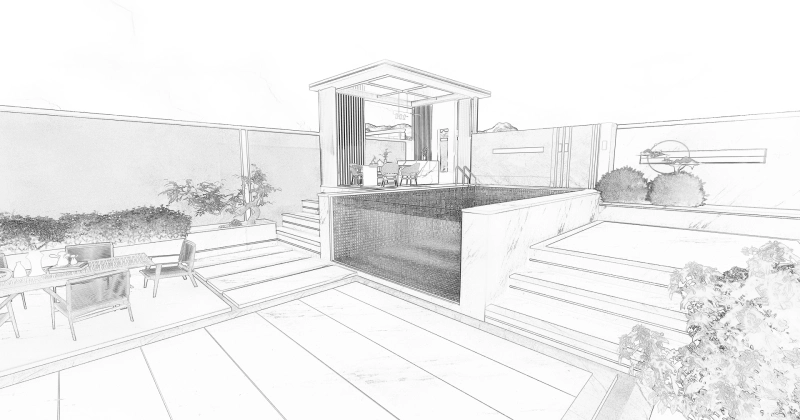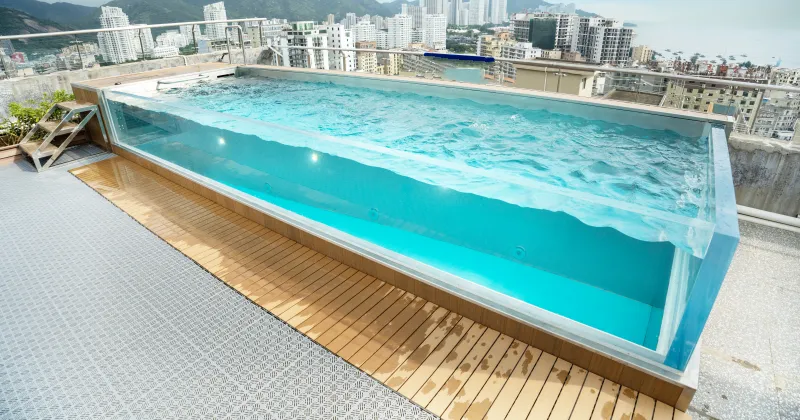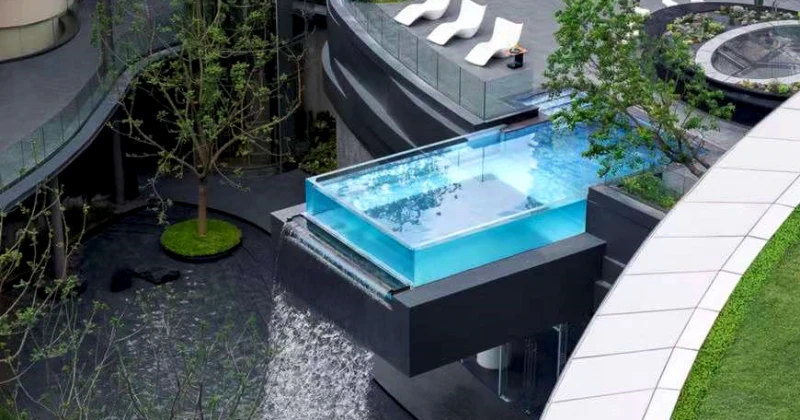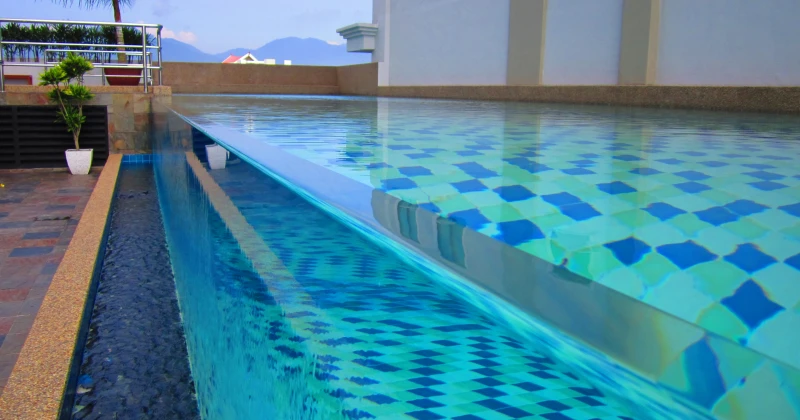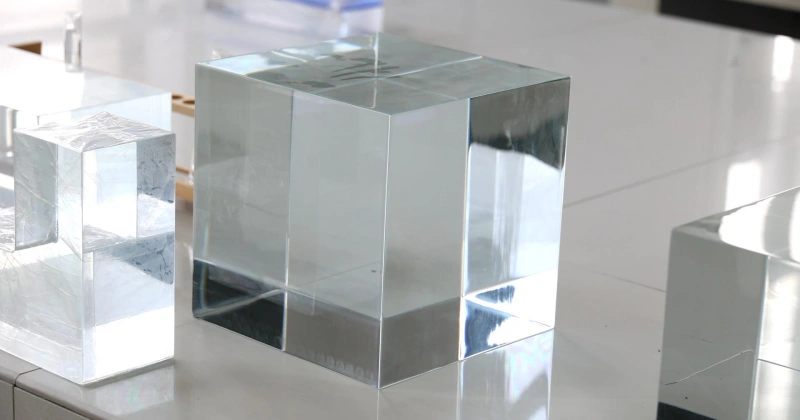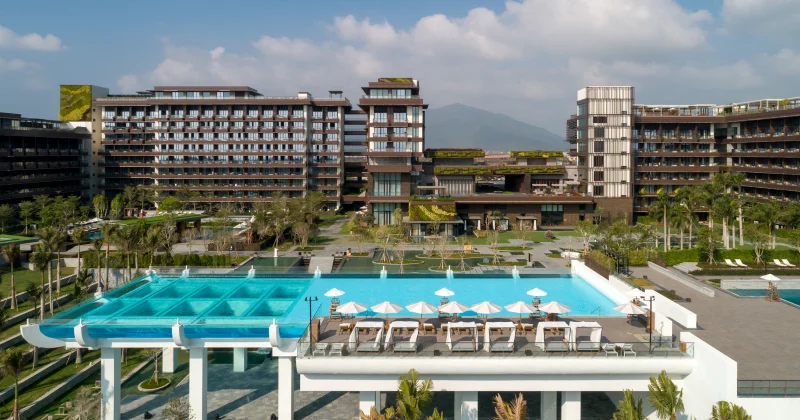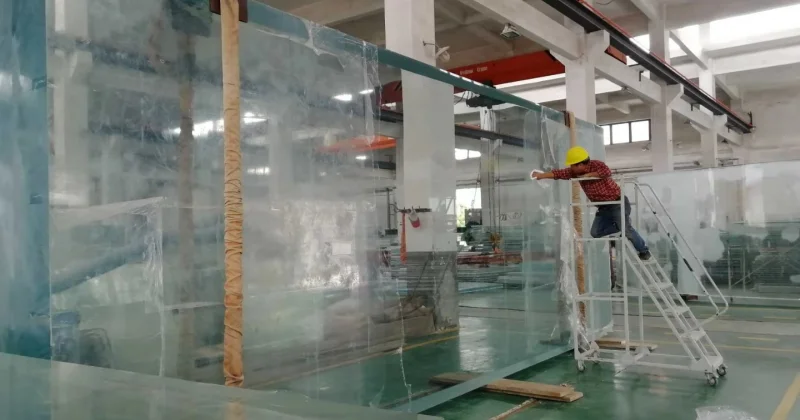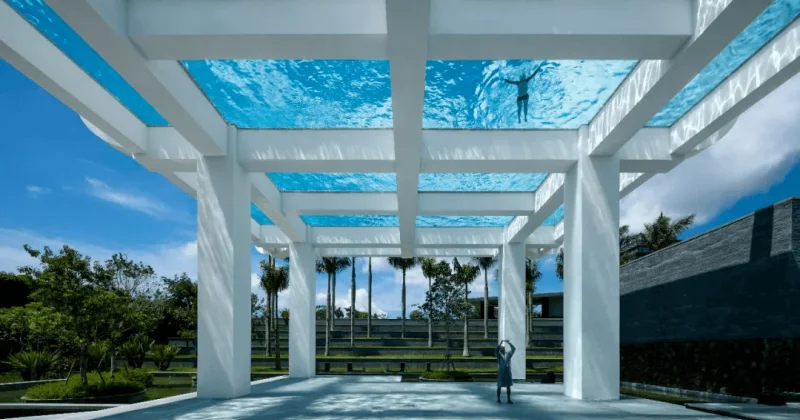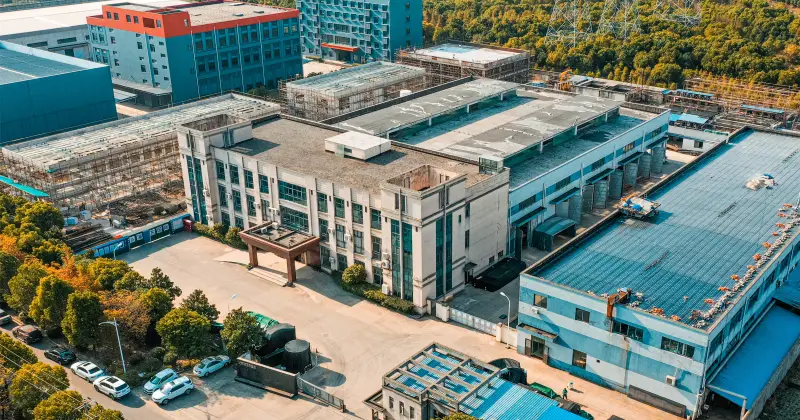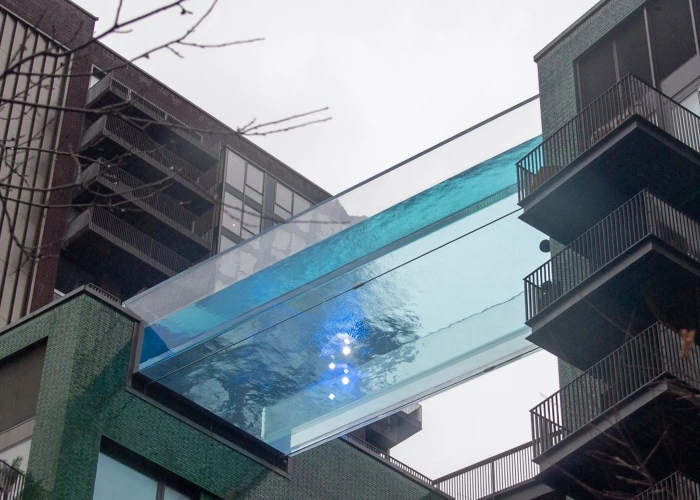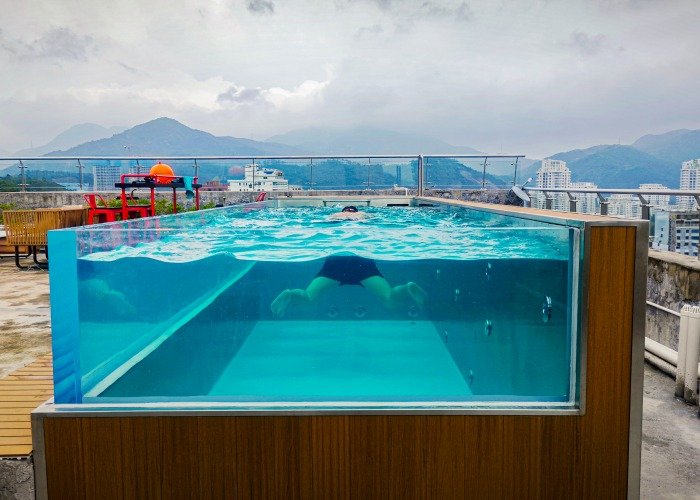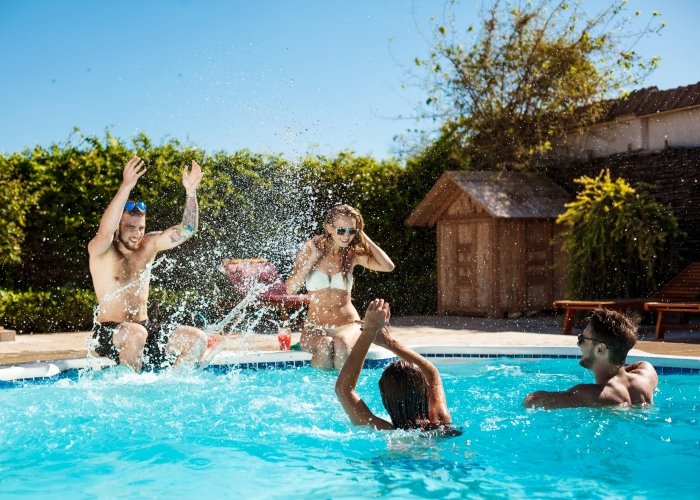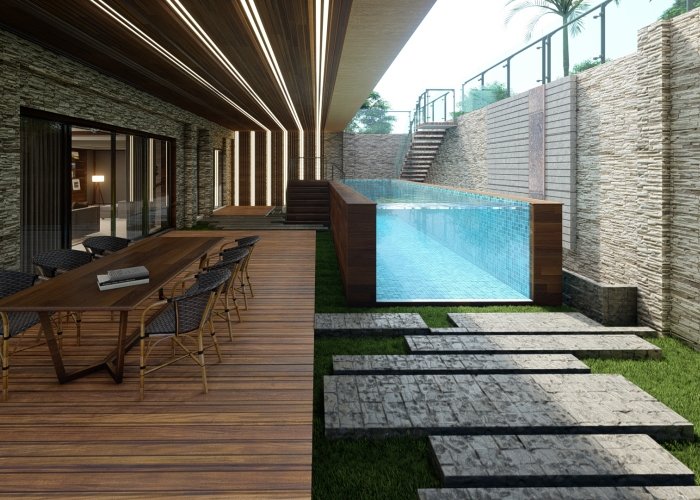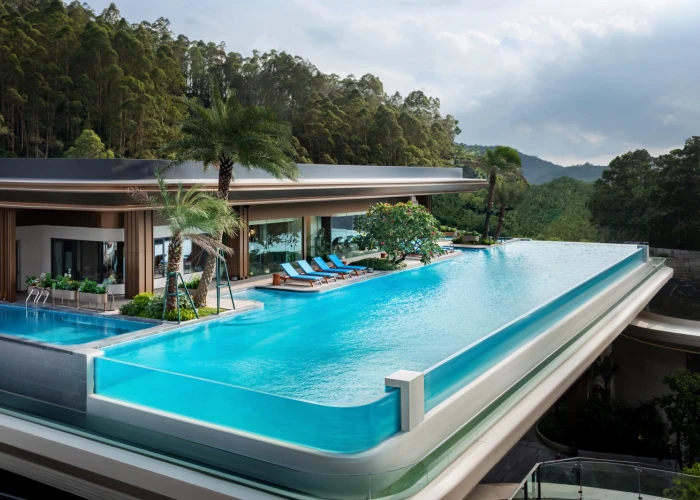
Tips for Maintaining an Above-Ground Swimming Pool
Building the swimming pool isn’t the only thing you have to do when you have one in your backyard. You also need to know how to maintain it. After all, isn’t it only after learning to keep an above-ground pool in winter and summer that you can enjoy it the most?
Plus, good maintenance does more than extend the life of your pool! It ensures that you have the most fun while staying safe. Still, knowing the best strategies for keeping your pool in tip-top shape is not easy.
That’s why, to help you out, we’ve compiled an above-ground pool maintenance checklist with all the important cleaning routines, info on water chemistry management, and even points on equipment upkeep and seasonal care!
But first, let’s figure out why maintenance is necessary.
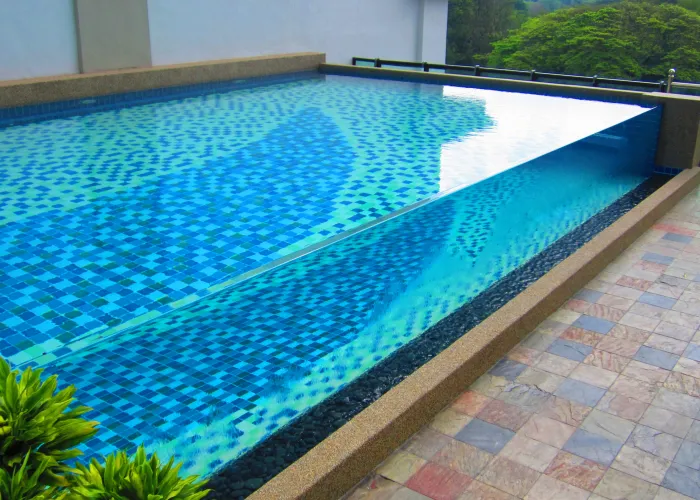
Why Is Regular Maintenance Crucial?
There are a couple of reasons why routine maintenance is necessary, and some of them are outlined below:
- Well, simply put, it’s important for every swimmer’s health. Good maintenance reduces the chance of waterborne illnesses and algae growth.
- And, of course, proper care means less expensive repairs and longer lifespans of pool components like the liner, pump, and filters.
- Thirdly, with regular maintenance, you get to protect the water quality! Not only will this look inviting (to cannonball into), but it’ll also protect you and all other swimmers from contaminants.
With the above-ground swimming pool industry forecasted to grow to a market share of USD 4.63 billion by 2031, it’s no surprise that many people will need to follow these maintenance tips!
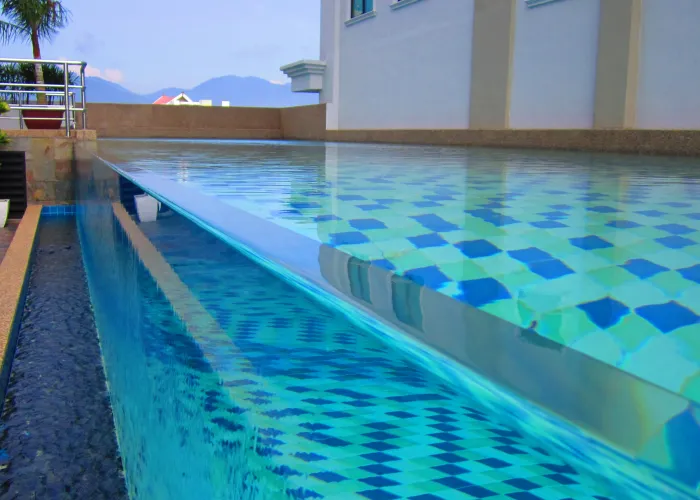
Care Tips for An Above-Ground Pool
Tip 1. Essential Regular Cleaning Routines
Let’s start with an above-ground pool maintenance schedule. To keep your pool pristine, you must be careful and regular with these routines since they’re non-negotiable in removing debris, preventing algae growth, and keeping the water crystal clear.
Skimming and Brushing
The first two things you must remember are skimming and brushing. Here’s what they help you with:
- Skimming: When you regularly skim the surface of the pool, you end up removing leaves, bugs, nd other debris that otherwise affect water clarity. Ideally, you must skim the pool daily, especially if your pool is near trees.
- Brushing: Secondly, brushing the pool walls is also important, and you must do it at least once a week. This helps prevent algae from forming. You’ll need a pool brush designed for your pool’s specific surface to avoid damage.
Here’s a Tip: Brushing, in combination with a chemical treatment, helps prevent algae growth in your above-ground pool, ensuring a healthier swimming environment.
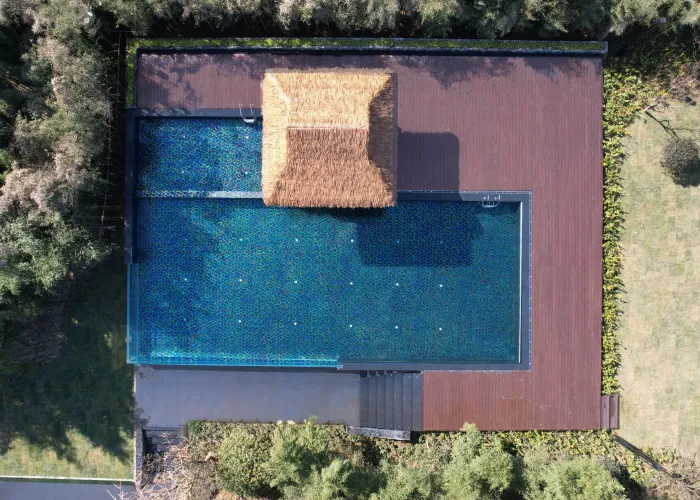
Vacuuming
A second routine you need to consider is vacuuming. This helps remove dirt and debris that settle at the bottom. The different types of pool vacuums that you can use include:
- A manual vacuum requires you to guide the vacuum across the pool floor yourself, but, on the plus side, it gives you more control over the cleaning process.
- Another option is the automatic pool vacuum, which can be used for suction, pressure, or robotic purposes—these clean the pool without requiring constant supervision.
You have to do this at least weekly. However, if you use the pool much more heavily, you might need to increase the frequency of the vacuuming.
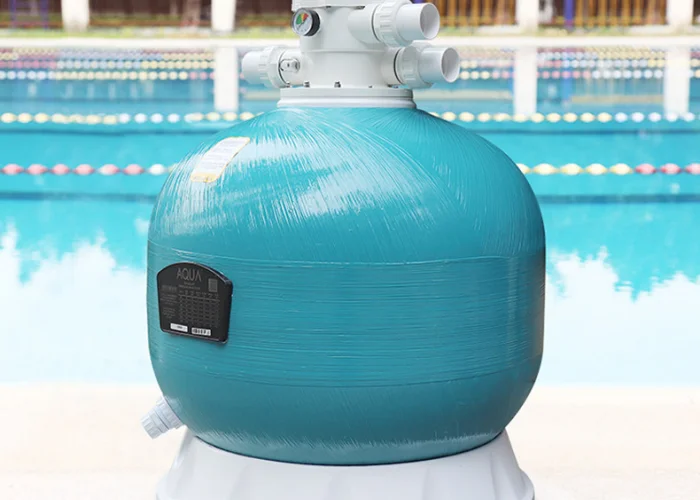
Filter Maintenance
Then there’s filter maintenance. Filters are some of the most essential parts of keeping the water clean and safe. Depending on your filter type—sand, cartridge, or DE (diatomaceous earth)—you’ll have to change how you clean, but here are the usual methodologies:
- Backwashing (Sand and DE Filters): To reverse the water flow to flush out the trapped debris. This has to be done whenever the filter pressure rises 7-10 PSI above normal levels.
- Cartridge Filters: You need regular removal and rinsing with a hose to maintain these. Moreover, you must replace the cartridge as needed, typically every 1-2 years.
Here’s a Tip: You should always monitor the pressure gauge and clean your filter before it gets clogged. An overloaded filter reduces pool circulation and water quality.
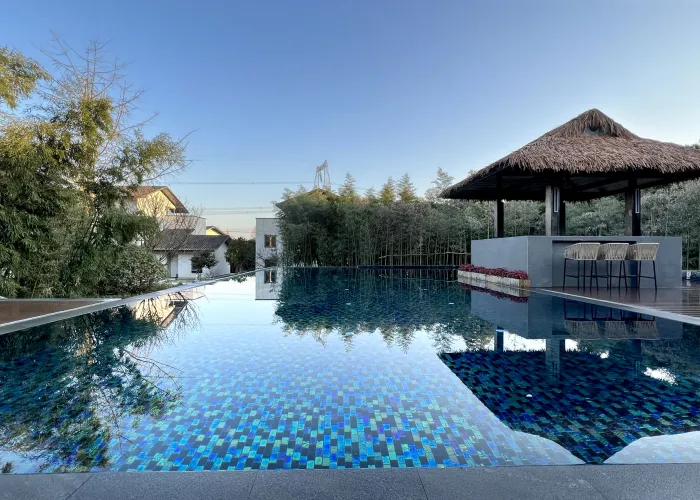
Water Chemistry Management
While checking off your above-ground pool maintenance checklist, you must also balance water chemistry, protecting pool equipment, and swimmer comfort. To ensure this chemistry, there are three factors to consider:
1.pH Levels
An important part of water chemistry is the pH balance; the perfect pH level is between 7.2 and 7.6.
Test it with strips or a liquid test kit, and if it’s too low, you’ll need to add sodium carbonate to make it less acidic. If it’s too high, use sodium bisulfate or muriatic acid for less alkalinity.
2.Chlorine Levels
Secondly, you want to keep the chlorine levels at perfect. This is essential since it sanitizes the pool and kills bacteria. To maintain optimal levels, you need to test them regularly, which you can do with the testing kit provided.
If it’s too low, you have to add more – make sure not to swim until enough chlorine has been added and mixed in the water. This is because if you don’t have enough chlorine, bacteria will grow, and you don’t want that messing with your health, do you?
On the other hand, don’t add too much because that can mean skin and eye irritation for anyone swimming in that water.
3.Shock Treatment
Finally, there’s shock treatment in case of high levels of contaminants or after regular periods as per the manufacturer’s instructions and shock products. Shock treatments mean adding a higher dose of chlorine to the pool to kill contaminants.
Here’s when it should be done:
- After heavy use
- After rainstorms
- When the water appears cloudy or smells like chlorine
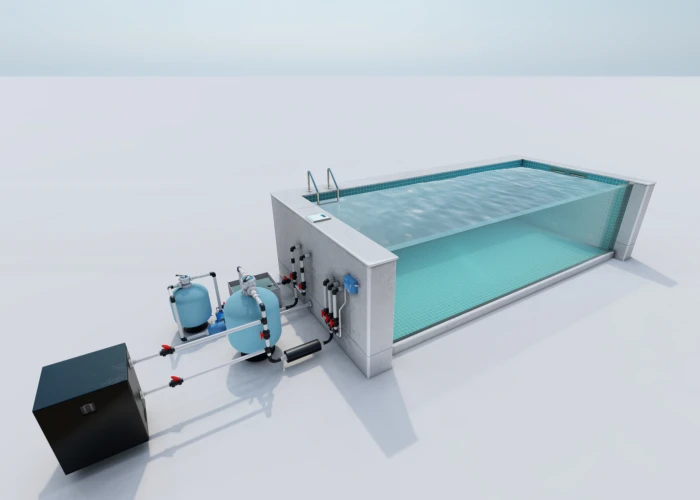
Equipment Maintenance
You must also care for your pool's equipment for your above-ground pool maintenance schedule to be perfect. After all, it’s vital for circulation, filtration, and overall functionality.
Here’s how you care for the key components:
1.Pump and Motor Care
The pump and motor are responsible for circulating water and keeping it clean, which makes it very important to maintain.
To do so, you want to inspect these for leaks or unusual noises regularly. If you find them, you must tighten loose bolts and lubricate the pump’s o-rings and gaskets. This prevents leaks and wear.
Also, permanently remove the debris from the pump’s skimmer basket.
2.Liner Care
The liner protects your pool from leaks and damage. To extend this equipment’s life, you must inspect it regularly and look for tears, wrinkles, or areas where it has become loose.
If you find any, you must promptly repair the tiny tears with a pool liner patch kit. Also, always avoid sharp objects in the pool that can puncture the liner. Plus, make sure to ensure proper water chemistry to prevent liner degradation!
3.Cover Maintenance
You also need to do cover maintenance. You probably know that pool covers are required to protect your pool from debris and retain heat, but you might need to know that you must maintain the covers themselves for full effectiveness.
Firstly, hose them off regularly, especially when you take them off the pool. Secondly, when you’re not using them, store them in cool and dry places so they don’t deteriorate in the sun.
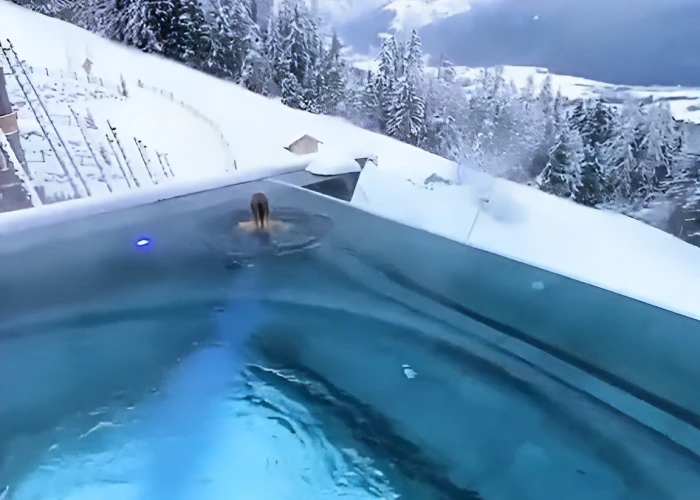
How To Maintain Above-Ground Pool In Winter and Summer: Seasonal Care Tips
Of course, your pool’s needs might vary depending on the season. But if you prepare, you can extend the life of your pool and reduce the chance of damage.
For example, when opening your pool for the swim season (usually all of summer), you should:
- Remove the cover, clean it, and store it securely.
- Reassemble the equipment—the pump, filter, and other items.
- Clean the pool—skim the water, vacuum anything left, and brush the walls. Then, do a shock treatment.
- Finally, always test the water before swimming and regularly balance the water’s pH and chlorine levels.
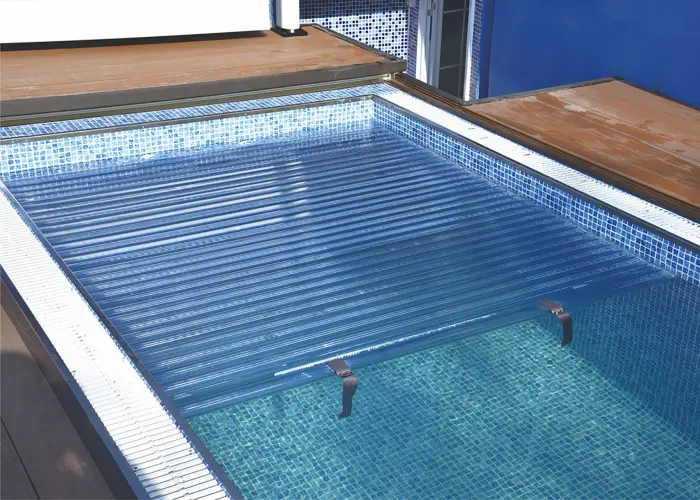
Winterizing the Pool
On the other hand, when you’re shutting the pool down for winter, you need to do the following to protect it:
- Test and adjust the pH, alkalinity, and calcium.
- Lower the water level and drain it to – give or take – 4 to 6 inches below the skimmer.
- Next, simply add winterizing chemicals (they prevent algae growth).
- Finally, put up a winter cover to keep out debris.
Regular Season Checks
Even throughout the swim season, you should perform the following checks:
- Skim and vacuum regularly.
- Test water chemistry at least twice a week.
- Monthly equipment inspections!
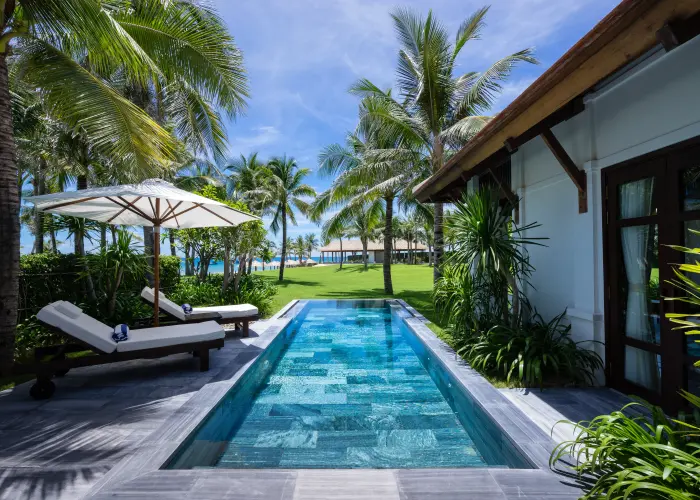
Troubleshooting Common Pool Issues
Then again, even with a maintained pool, you might still need some help. What do you do then? The answer’s easy – see the problem and then figure out a solution! Here are some of the common ones:
1.Cloudy Water
Causes: Imbalanced pH or chlorine levels, poor filtration, and debris accumulation.
Solution: Shock treatments, filter maintenance, proper circulation.
2.Algae Growth
This can turn the water green or black, mainly during hot or humid weather. To remove this, you must:
- Shock the pool
- Brush the affected areas
- Or use an algaecide as recommended
3.Equipment Malfunctions
On the other hand, you might also experience equipment issues, such as the pump or filter not functioning correctly. To fix this, you can:
- Check for blockages
- Inspect electrical connections
- Consult a professional
Reaching out to a professional is always a good idea. You can consult one for more problematic issues or utilize their services regularly. AUpool is one such service that is quite well-known for its expert advice and high-quality products.
Whether dealing with water clarity, algae, or equipment issues, AUpool has everything you need!

The Bottom Line
Setting an above-ground pool maintenance checklist to keep your pool secure might seem like a lot of work, but it can be both manageable and rewarding with an above-ground pool maintenance schedule!
Regular cleaning, water chemistry management, and equipment upkeep all help your pool stay in great shape, which means you get to enjoy years of enjoyment for you and your family.
Most importantly, consulting with a maintenance professional can help you catch potential issues before they become costly repairs and ensure a clean, safe, and fun swimming pool all season long.






